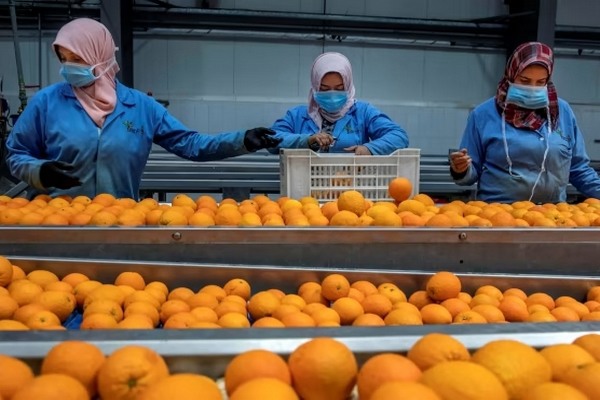LA UNIÓ has reiterated the need to investigate Egypt for possible commercial dumping in the entry of its citrus fruits into the EU market. It is arguing this based on Regulation (EU) 2016/1036 of the European Parliament and of the Council, of June 8, 2016, on protection against imports that are subject to dumping from non-EU countries.
From January to April, there is an increasingly significant presence of Egyptian citrus in the European retail. Records could actually be broken this campaign. "Their products arrive at very low prices that are distorting the market, and that's causing us European producers, who actually meet the commitments of the Green Pact in environmental and social matters, to lose competitiveness," says Carles Peris, Secretary-General of LA UNIÓ.

This competition is taking a toll on the Spanish campaign, which had been going well up until the end of December and is now strongly affected by the imports of Egyptian oranges. Large volumes of the latter are being shipped to the EU markets, causing overlap with the varieties of EU producers. Of course, the EU is a single market and the fact that Egyptian imports are more present in some Member States does not imply that these products do not compete in the same market, both with each other and with the European productions.
As of November 2023, Egypt had exported 488,881 tons to the EU, 108% more than the previous year and 84% more than the average of the last few campaigns. Egypt has already become the second biggest importing country, after South Africa. The Egyptian varieties for the fresh market, Navel and Valencia, arrive to European ports at prices of around 0.48 and 0.46 euros/kg, respectively, and juicing oranges are sold for 0.38 euros/kg, slightly less than the price paid for our oranges at the warehouse.
These prices are possible, among other things, because the Egyptian minimum wage is much lower than that of EU producers. To this we must add that Egypt does not comply with the international labor conventions of the ILO, which is why LA UNIÓ had already proposed the automatic suspension of imports to the EU. Also, Egypt, like other third countries, has much lower environmental and phytosanitary standards than those in place in European countries, which also makes it easier for them to produce very cheaply. LA UNIÓ has long proposed to demand reciprocity in production methods and the use of phytosanitary products.
This problem will likely continue in the future, as Egypt has planted almost 24 million orange trees, of which about 14 million trees are already in production, but the rest have yet to do so.
 For more information:
For more information:
La Unió
https://launio.org
